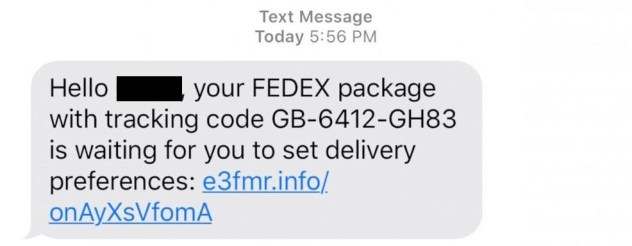Coronavirus scams are as bad as the disease
The coronavirus crisis has not gotten any better over the past few weeks. Tragically, it has claimed more lives and more cases are being reported every day. The crisis has created such a climate of fear that scammers have tried to seize every opportunity to take advantage of that fear. It’s gotten so bad that Amazon has removed one million products that made false coronavirus claims and Facebook has cracked down on misleading ads about coronavirus. This is not something that either of these companies does lightly. Just about every State Attorney General has also warned their constituents to wary of scams related to the outbreak.
When we first discussed coronavirus scams, we discussed phishing attacks that are used to infect your device with malware. Those phishing attacks have become more sophisticated as many of them are now trying to disguise their emails as coming from places like the World Health Organization or the Centers for Disease Control. A great way to tell that these emails are fake is checking the email address it was sent from. If it’s from the WHO the email address would end in who.int while the CDC’s would end in cdc.gov. You should also always hover your cursor over any links contained in the email to see exactly where the links may take you. The odds are they’ll take you to a site infested with malware or one designed to try to steal your personal information.
[youtube https://www.youtube.com/watch?v=bcDoiSgrrzI%5D
We’ve also previously discussed how con artists from all over the world are trying to sell snake oil cures. Again, as of the time of this post, there is no vaccine or cure for the coronavirus. Anyone who is trying to tell you otherwise is either woefully misinformed or trying to sell you something that is at best a placebo and at worst toxic and dangerous.
Much like when a natural disaster occurs, price gouging is also being committed for legitimate supplies that will be useful if everyday services become disrupted. Bottled water is one of those items as are surgical masks. Speaking of the masks, you shouldn’t be going out to buy a crate of masks unless advised by a medical professional. Surgical masks are designed to keep the wearer from spreading any infection and doesn’t prevent wearers from getting one. Not only that, but there are also counterfeiters who are selling bogus masks that don’t do anything at all. There have also been reports that bogus websites have been popping up claiming to sell masks and other items that aren’t selling anything at all. Instead, they’re just stealing your financial information.
Even the greedy among us are being scammed by buying into phony investments that promise a return when you supposedly invest in companies that will supposedly cure the virus. On the flip side, the charitable among us are at risk as well as many scammers will be posing as charities that either claim to be researching a cure or helping those affected by the disease. Always carefully research any charity you think is worth donating to.
For more information please check the Federal Trade Commission’s website about coronavirus scams.
As always, if you want to keep abreast of the ever-changing situation please go to the websites for the World Health Organization, or the Centers for Disease Control.












Leave a Reply